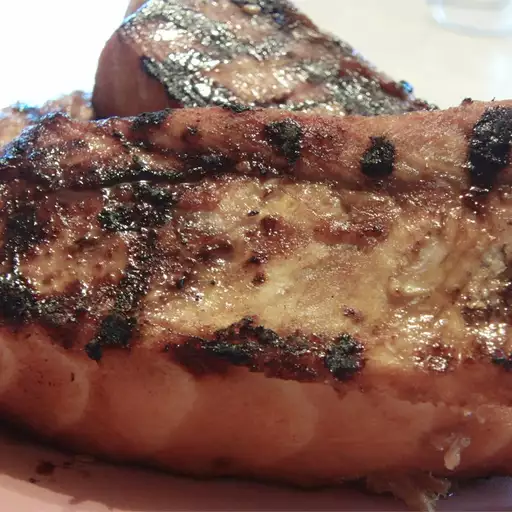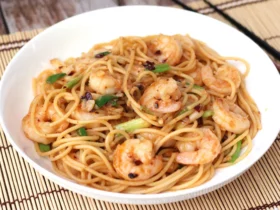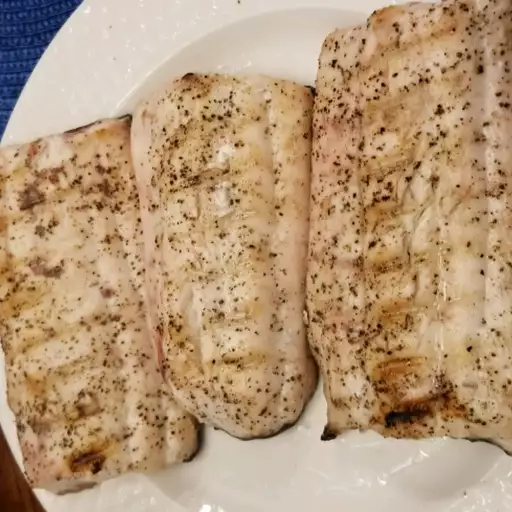Background and History
Grilled Gulf Shark is a popular dish in coastal regions where shark is readily available, particularly in the Gulf of Mexico. Shark meat has been consumed for centuries by various cultures, valued for its firm texture and mild flavor. Grilling is a favored method for cooking shark because it enhances the meat’s natural flavors and provides a delicious smoky taste. This dish is a testament to the resourcefulness of coastal communities, turning a readily available local catch into a gourmet meal.
Ingredients
- 4 Gulf shark steaks (6 oz each)
- 1/4 cup olive oil
- 2 tablespoons lemon juice
- 2 cloves garlic, minced
- 1 tablespoon fresh rosemary, chopped
- 1 tablespoon fresh thyme, chopped
- 1 teaspoon salt
- 1/2 teaspoon black pepper
- Lemon wedges (for serving)
- Fresh parsley, chopped (optional, for garnish)
Serves
- 4 people
Time
- Preparation Time: 20 minutes
- Marinating Time: 30 minutes (optional, but recommended)
Cooking Time
- 10-12 minutes
Instructions
Prepare the Marinade
In a bowl, combine olive oil, lemon juice, minced garlic, chopped rosemary, chopped thyme, salt, and black pepper. Mix well.
Marinate the Shark
Place the shark steaks in a resealable plastic bag or a shallow dish. Pour the marinade over the steaks, ensuring each piece is well coated. Seal the bag or cover the dish and refrigerate for at least 30 minutes to allow the flavors to infuse.
Preheat the Grill
Preheat your grill to medium-high heat (about 400°F/200°C). Brush the grill grates with oil to prevent sticking.
Grill the Shark
Remove the shark steaks from the marinade and let excess marinade drip off. Place the steaks on the grill and cook for 5-6 minutes per side, or until the shark is opaque and flakes easily with a fork. Avoid overcooking to keep the meat tender.
Serve
Transfer the grilled shark to a serving platter. Garnish with lemon wedges and chopped fresh parsley if desired. Serve immediately.
Nutrition Facts (per serving)
- Calories: 250
- Protein: 35g
- Fat: 10g
- Carbohydrates: 1g
- Fiber: 0g
- Sugar: 0g
- Sodium: 450mg
Notes
- Variations: You can experiment with different herbs and spices in the marinade, such as dill, basil, or paprika, to customize the flavor.
- Side Dishes: This dish pairs well with grilled vegetables, a fresh salad, or rice pilaf.
Allergy Warning
- Contains fish (shark).
- Ensure all ingredients are free from other allergens if cooking for someone with food allergies.
Enjoy your delicious grilled Gulf shark steaks! This recipe brings out the best in the shark’s firm texture and mild flavor, making it a delightful and unique addition to your grilling repertoire.
- Best Lusha Alternatives for 2025 - April 22, 2025
- Best Overloop Alternatives for 2025 - April 22, 2025
- Best 6sense Alternatives for 2025 - April 22, 2025















